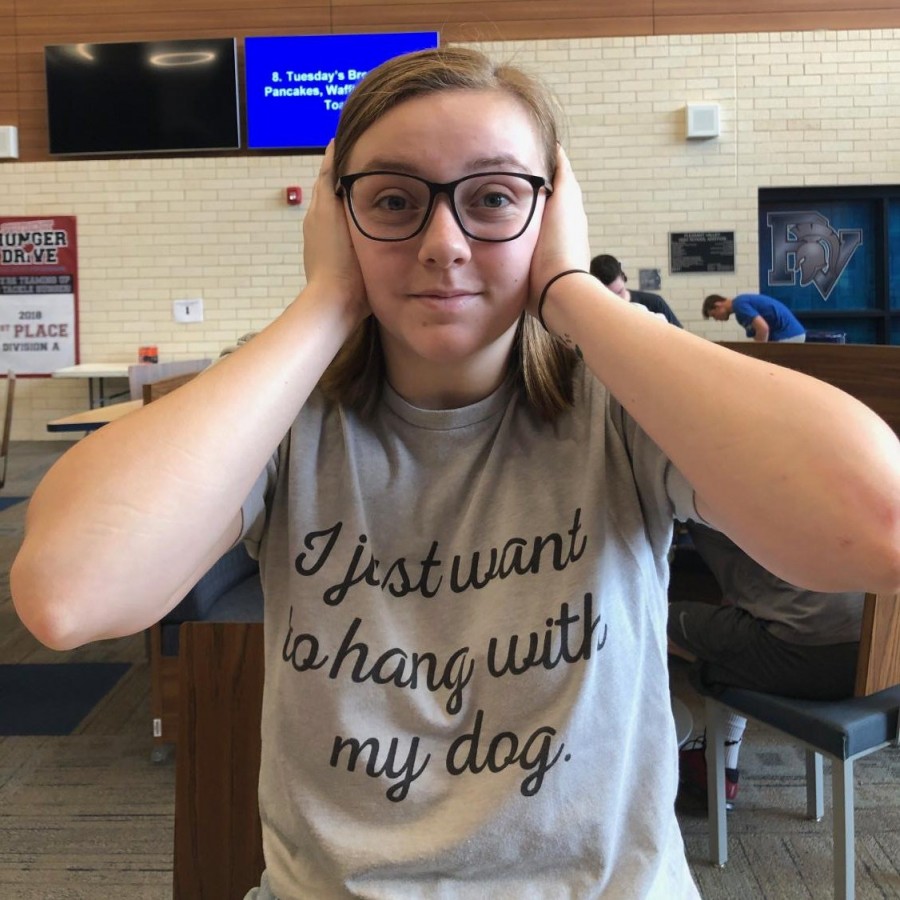From movies to books, spoilers have been occurring in society for years. However, with the recent release of “Avengers: Endgame,” students at Pleasant Valley have heard this term more than ever.
In the past week, students could hardly get through a class without a spoiling close-call; or even sadder, some did have the ending spoiled for them. The terms “no spoilers” and “don’t tell me” ran rampant.
What part of the human psyche makes people desire to spoil for others? Additionally, what is the psychological science behind why humans are so averse to spoilers, and, are they as bad as people say?
It is generally believed spoilers do the very thing the name suggests: spoil, or ruin, a movie or TV show. However, in contrast to this widely held belief, a 2011 experiment performed by Jonathan Leavitt and Nicholas Christenfeld at the University of California, San Diego found that spoilers can actually make one enjoy a movie more.
In this experiment, Leavitt and Christenfeld took 819 students and made them read three previously unknown stories that included ironic twists, suspenseful moments, and intense resolutions. Leavitt and Christenfeld put these students into two groups: one group where the stories were spoiled and one where they were not.
Interestingly enough, the group who had the stories spoiled for them reported more enjoyment overall. As the researchers stated, it may be because“spoilers may allow readers to organize developments, anticipate the implications of events, and resolve ambiguities that occur in the course of reading.”
Spoilers may help people understand the stories better. This relates to perceptual fluency, or the idea that the easier it is to understand something, the more one can enjoy it. If one understands a story better because of a spoiler, it can also increase predictability, which can make an experience more enjoyable for some.
In addition, when one knows the twist, it allows them to focus less on the plot and instead focus on the beauty of the film. It can also allow them to better understand what the filmmaker is doing, especially in noticing clues the filmmaker embeds along the way.
To many, the tension one feels while watching for a twist to occur, can actually detract from their overall enjoyment. Many do not enjoy the feeling of intense suspense. This relates to experimental avoidance, which is the tendency for one to avoid thoughts, feelings, memories, and physical sensations that are unpleasant.
PVHS sociology teacher Trever Zahn believes that the prevalence of people who enjoy spoilers also stems from a specific societal trend. “[It relates to] society and its lack of patience. The mindset and attention span of people are shortening, leading them to want to know things quicker.”
All of this is not to say that one should go out and spoil a movie for everyone, however. Everyone is different, and everything is subject to one’s own personal preference and expectations.
A common point regarding the 2011 study is that those tested were not emotionally invested in the three unknown stories they were reading. In contrast, those waiting to see highly anticipated movies, like “Avengers: Endgame,” are. This is called poor external validity, which says that the study just doesn’t apply to how spoilers are experienced in real life.
The more someone cares about a story, the more they look forward to it and the more the spoiler will affect them. For a movie like “Avengers: Endgame,” which is the final Avengers movie in a long and popular franchise, this is especially true.
Senior Katie Henricksen agreed. Henricksen, who had the ending of “Avengers: Endgame” spoiled for her, was very disappointed. To Henricksen, who believes that spoilers are generally “bad and unnecessary,” the specific movie spoiled was part of what made it so bad. She described it in this way, “[Avengers] is such a long series and people become very invested. This is their last big movie.”
The way that movies are spoiled also relates to how they can be negative. When one has something spoiled for them, it is usually in a situation where it is out of their control, where they are actively not seeking it out.
In his article, Dr. Ali Mattu expanded on this point. “One of the reasons people are so affected by spoilers is because of the way things get spoiled…real life spoilers happen in an elevator on the way to work when random strangers vent about who got killed in last night’s ‘Game of Thrones.’”
In addition, not everyone dislikes suspense; for those who do enjoy anticipation and suspense, spoilers are detrimental, ruining a key aspect of enjoyment.
Now, onto why people enjoy spoiling things for others. In his article, Dustin Rowles had some theories. Rowles believes many people want to be able to self-identify with a show, and by spoiling that show to others, people can show their involvement and devotion. He included “that we live in a culture where we all want to chime in, where we all want to be a part of the conversation.
Henricksen echoed this statement. She believes a key component of why people spoil is the fact that they want to converse with others. “[People spoil] because they want to talk about it; in general, people only really spoil good movies,” she said.
Zahn believes people may also want to spoil for another reason. “It gives them the upper edge and shows that they are the first person to know. Since they know, they want other people to know too.” To Zahn, it also relates to confirmation bias. He explained its correlation. “You know and you want everyone to know why you know.”
There is a lot of science to back up spoilers: why they can be positive, why they can be negative, and why people are so quick to spoil things for others. However, it is important to be cognizant of the fact that many do not enjoy spoilers and that one should be sensitive to that.










